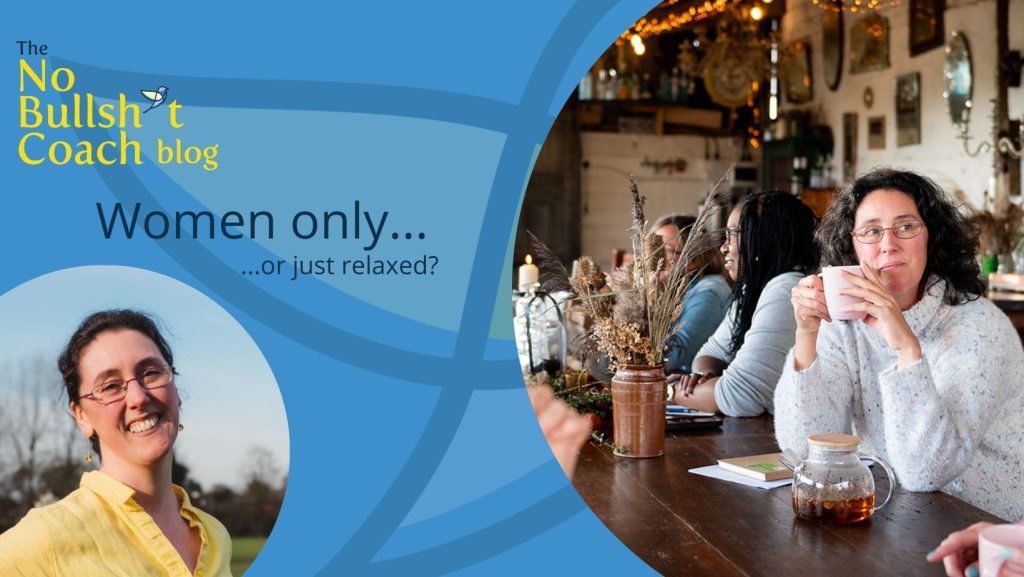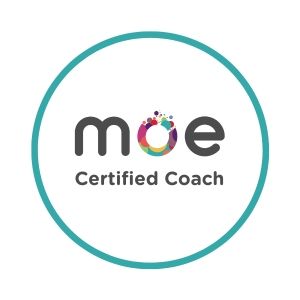Your basket is currently empty!
Women only, or just relaxed?

Last year, I suggested to the Altrincham and Sale Chamber of Commerce that they do some lunchtime networking events. That was a purely self-interested suggestion, because as a single parent I can rarely get to breakfast or evening networking events. I suggested that I co-host these lunchtime networking events with the Chamber – we have hosted five to date, which I have absolutely loved.
At the time that we launched them, we called them Women in Business Networking Lunches.
We have now had our last Women in Business Networking Lunch, as our next event in October will be a Relaxed Networking Lunch – no mention of gender.
Why the change, and why was it for ‘women in business’ in the first place? The change has come about because I have undergone quite a bit of equality, diversity and inclusion education over the last year, since my ex transitioned and I have learnt a hell of a lot from people such as G Sabini-Roberts and Alex Lynam. I now understand that an event that is billed as for ‘women’ not only excludes people who actually fit the criteria for what the networking event is all about.
What do I mean by criteria? Well, this brings us to why it was ‘women in business’ in the first place…
Sometimes spaces are designated ‘women only’ for health, cultural, or safety reasons. But when it comes to networking and events, so often ‘women’ or ‘women in business’ is used as shorthand for what people actually want the event to be, and for the attendees they actually want to attract. I’ve had this discussion with a number of people, and it seems to be the case that ‘women in business’ is shorthand for:
- Relaxed, compassionate, approachable, friendly
- No sales pitches, no pushy selling tactics, no elevator pitches
- Encouraging and validating, not patronising
- Somewhere that what you say about yourself and your experience(s) will be believed, not questioned
- An emotionally safe environment
- A space where non-work/career topics of conversation are welcomed
Reading that list. I am sure that you can think of women who would not fit in that environment, and people from other genders who would. So when we use ‘women in business’ for events, could it be that we are being lazy in our descriptions, and that laziness leads to people who are ideal for our events being excluded, feeling excluded or simply dismissing the event as not for them?
I think we are, and I think that we are also being lazy in saying that people who would not fit in that environment are all male, or do not identify as women. And of course, when we say this an event is for women, unless we are very clear in our inclusion, trans women will often assume that they are excluded, as historically, unfortunately, that has been the case.
Yet a friendly, relaxed, non-pushy, non-patronizing, encouraging, uplifting and easy to handle networking event sounds wonderful, does it not? Isn’t that something that a lot of people would want to attend? So how do we ensure that our events and networking groups fulfill that brief without going down the lazy route of saying ‘women only’? And how do we manage people who come to those events with a different networking style?
This is where the work comes in. Because if we’re not being lazy in being excluding, then we have to be vocal in upholding our boundaries as event organizers. If someone is pushing sales, talking over everyone else, being patronizing, being unfriendly, being unhelpful and generally making others feel unsafe, as hosts we need to have the ability to tackle that. Which is not easy, but whilst that can be hard, surely we can agree that learning how to do that is better than excluding people from our spaces?
As attendees, how can we ensure that we are being helpful and friendly towards other networkers who are perhaps nervous, neurodivergent, from marginalized communities, or who simply are not in the mood for the elevator pitch and hard sell?
A few tips for how to be a compassionate networker:
- Let people finish speaking and listen to what they say, rather than interrupting or talking over them
- When someone tells you what they do for a living, don’t go straight into questioning them about their training and qualifications
- Allow people their personal space
- If you get the impression that someone could benefit from your services, ask them for a business card so you can continue the discussion over email, rather than trying to sell to them there and then
- If people are enjoying a conversation about a topic you do not know about, listen and learn rather than pushing in to change the topic
- Remember that asking questions and listening to the answers is a better way to build connections than talking at people
Do I always follow all of the above tips? Of course not – I’m human as are you and we’ll all get it wrong on occasion. The more we can create safe and relaxed spaces though, the more relationships we will build, the more connections we will make and, ultimately, the more business will get done. What would you add to a list of tips for being a compassionate networker?
When I had this discussion with my partner he said that it sounded like some people do business directly and get to know each other obliquely, whilst some people get to know each other directly and do business obliquely. I am definitely the latter – getting to know someone is step 1 for me, and if business follows then great. Anyone who comes straight at me with their elevator pitch will never get to know me as I will shut down, so they will never get my business.
What type of networker are you?
Helen Calvert
The No Bullsh*t Coach
July 2024
P.S. if you would like to join us for the next Chamber of Commerce Relaxed Networking Lunch you can get your ticket here!


